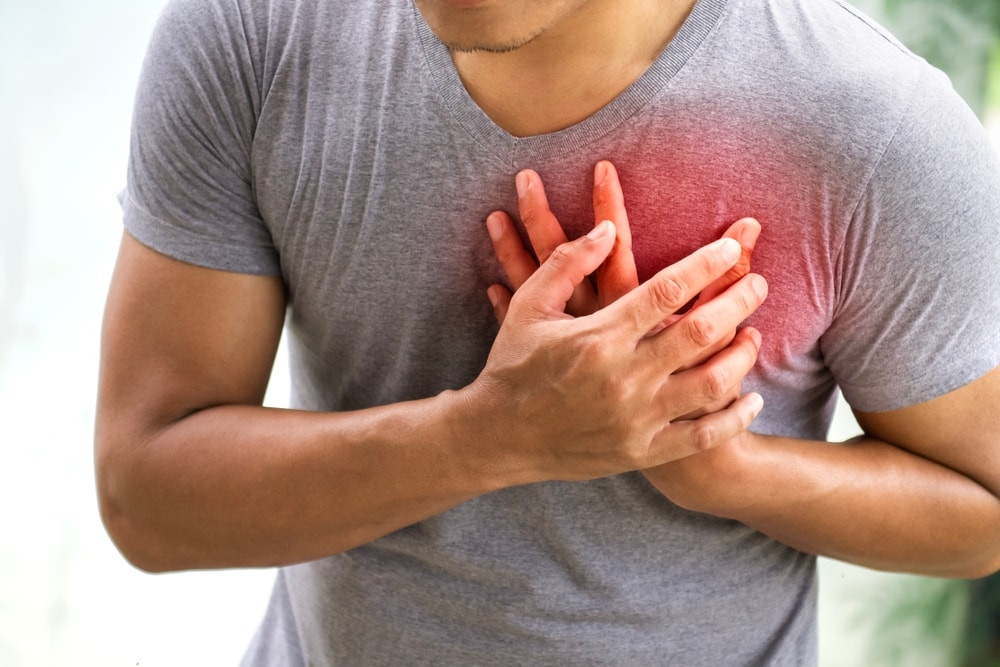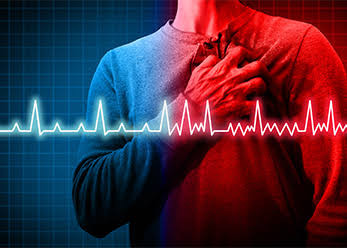Definisi
Kardiomiopati adalah suatu penyakit pada otot jantung (miokardium) yang menyebabkan jantung sulit untuk memompa darah ke seluruh tubuh. Pada kardiomiopati, otot pada dinding jantung menjadi meregang, menebal, atau kaku sehingga memengaruhi kemampuan jantung untuk memompa darah ke seluruh tubuh. Seiring berjalannya penyakit, jantung Anda dapat melemah dan kardiomiopati dapat menyebabkan timbulnya gagal jantung.
Terdapat beberapa jenis kardiomiopati yang paling sering terjadi, yaitu:
- Kardiomiopati dilatasi, di mana ruang jantung yang berfungsi untuk memompa darah mengalami pembesaran (pelebaran).
- Kardiomiopati hipertrofik, dimana otot jantung mengalami penebalan.
- Arrhythmogenic Right Ventricular Dysplasia (ARVD), yaitu penyakit pada otot jantung yang menyebabkan irama jantung tidak teratur.
- Kardiomiopati restriktif, di mana terbentuk jaringan parut, kekakuan, atau keduanya pada otot jantung Anda.
- Transthyretin Amyloid Cardiomyopathy (ATTR-CM), yaitu terjadinya penumpukan suatu protein abnormal (ATTR amyloidosis) di bilik kiri jantung Anda (ruang pemompaan darah utama).
Selain itu, terdapat juga beberapa jenis kardiomiopati yang tidak termasuk dalam kategori di atas, antara lain:
- Broken heart syndrome (kardiomiopati akibat stres atau kardiomiopati takotsubo), yang merupakan pembesaran jantung secara sementara.
- Kardiomiopati yang diinduksi kemoterapi, yaitu kerusakan jantung yang berhubungan dengan pengobatan kanker (kemoterapi).
- Kardiomiopati peripartum, yaitu gagal jantung yang terjadi selama atau setelah kehamilan.
Penyebab
Penyebab kardiomiopati seringkali tidak diketahui secara pasti (idiopatik). Dalam kasus lain, penyebabnya dapat bersifat diturunkan atau didapat:
- "Diturunkan" berarti Anda terlahir dengan kardiomiopati karena gen yang Anda warisi dari orang tua Anda.
- “Didapat” berarti Anda menderita kardiomiopati karena kondisi kesehatan atau jenis penyakit lainnya selama hidup Anda
Kondisi atau penyakit tertentu yang dapat menyebabkan kardiomiopati meliputi:
- Tekanan darah tinggi yang dialami untuk jangka waktu yang lama
- Kerusakan jaringan jantung akibat serangan jantung
- Detak jantung cepat yang dialami untuk jangka waktu yang lama
- Gangguan katup jantung
- Infeksi Covid-19
- Infeksi tertentu, terutama yang menyebabkan radang pada jantung
- Gangguan metabolisme, seperti obesitas, penyakit tiroid, atau diabetes
- Kekurangan vitamin atau mineral penting dalam makanan, seperti Thiamin (vitamin B1)
- Komplikasi kehamilan
- Penumpukan zat besi di otot jantung (hemokromatosis)
- Pertumbuhan benjolan kecil yang berisi sel-sel radang (granuloma) di bagian tubuh mana pun, termasuk jantung dan paru-paru (sarkoidosis)
- Penumpukan protein abnormal pada organ (amiloidosis)
- Gangguan jaringan ikat
- Minum terlalu banyak alkohol selama bertahun-tahun
- Penggunaan kokain, amfetamin, atau steroid
- Penggunaan beberapa obat kemoterapi dan terapi radiasi untuk mengobati kanker
Faktor Risiko
Terdapat beberapa faktor yang dapat meningkatkan risiko kardiomiopati, antara lain:
- Memiliki riwayat keluarga dengan kardiomiopati, gagal jantung, dan henti jantung mendadak
- Memiliki tekanan darah tinggi dalam jangka waktu yang lama
- Memiliki kondisi yang memengaruhi jantung, termasuk serangan jantung di masa lalu, penyakit jantung koroner, atau infeksi di jantung (kardiomiopati iskemik)
- Obesitas, yang membuat jantung bekerja lebih keras
- Penyalahgunaan alkohol jangka panjang
- Penggunaan obat-obatan terlarang, seperti kokain, amfetamin, dan steroid
- Pengobatan dengan obat kemoterapi dan terapi radiasi tertentu untuk kanker
- Paparan zat-zat beracun seperti logam berat
- Menderita penyakit tertentu, seperti:
- Diabetes
- Penyakit tiroid
- Penyimpanan kelebihan zat besi dalam tubuh (hemokromatosis)
- Amiloidosis (terjadi penumpukan protein amiloid di tubuh)
- Sarkoidosis (terjadi pertumbuhan sel-sel tubuh yang mengalami peradangan)
- Gangguan jaringan ikat
Gejala
Pada tahap awal, kardiomiopati mungkin tidak menunjukkan tanda atau gejala apapun. Namun, seiring perkembangan penyakit, tanda dan gejala biasanya muncul antara lain:
- Sesak napas saat beraktivitas atau bahkan saat beristirahat
- Pembengkakan pada kaki, pergelangan kaki, dan telapak kaki
- Perut kembung karena penumpukan cairan
- Batuk ketika berbaring
- Kesulitan berbaring atau tidur telentang
- Kelelahan
- Detak jantung yang terasa cepat atau berdebar-debar
- Ketidaknyamanan atau rasa tertekan di dada
- Pusing, sakit kepala, dan pingsan
Diagnosis
Dalam mendiagnosis kardiomiopati, dokter akan mulai dengan melakukan wawancara dengan Anda. Dokter akan menanyakan gejala-gejala yang Anda alami, riwayat penyakit jantung yang pernah diderita sebelumnya, riwayat penyakit lainnya, riwayat penyakit dalam keluarga, serta faktor-faktor risiko yang mungkin Anda miliki. Selanjutnya, dokter akan melakukan pemeriksaan fisik, khususnya pemeriksaan fisik jantung Anda. Dokter juga mungkin melakukan beberapa pemeriksaan penunjang tambahan, seperti:
- Tes darah, untuk memberikan informasi tentang kesehatan jantung Anda dan juga membantu menyingkirkan kondisi lain.
- Rontgen dada dapat membantu dokter untuk melihat ukuran, struktur jantung, dan paru-paru Anda serta memeriksa adanya penumpukan cairan.
- Stress test, untuk mengukur fungsi jantung Anda saat berolahraga.
- Elektrokardiogram (EKG) digunakan untuk menilai aktivitas listrik jantung Anda dalam waktu yang singkat.
- Holter monitor dapat mengukur aktivitas listrik jantung Anda selama 24 atau 48 jam.
- Ekokardiogram dengan menggunakan gelombang suara untuk menunjukkan gambar jantung secara langsung dan bagaimana detaknya.
- MRI jantung dengan menggunakan gelombang magnet dan radio untuk menangkap gambar jantung dan pembuluh darah koroner Anda.
Dokter mungkin juga melakukan beberapa prosedur diagnostik untuk memastikan diagnosis, terutama jika Anda berencana untuk menjalani operasi. Prosedur ini mungkin termasuk:
- Kateterisasi jantung. Pada prosedur ini, sebuah kabel panjang dan tipis dimasukkan ke dalam pembuluh darah (arteri atau vena) menuju ke jantung Anda sehingga dokter dapat mengevaluasi jantung Anda untuk mencari penyebabnya, termasuk adanya penyumbatan pada pembuluh darah.
- Angiografi koroner. Pada pemeriksaan ini, dokter akan menyuntikkan zat pewarna ke dalam pembuluh darah Anda untuk melihat aliran darah melalui pembuluh darah arteri dan jantung Anda.
- Biopsi miokardium, yaitu suatu prosedur untuk mengangkat sebagian kecil jaringan jantung Anda sehingga dapat diperiksa di bawah mikroskop.
Tata Laksana
Tata laksana kardiomiopati pada umumnya berfokus pada pengendalian gejala Anda. Pengobatan juga dapat memperlambat perkembangan penyakit. Beberapa pilihan tata laksana kardiomiopati, meliputi:
- Obat-obatan: Obat jantung dapat memperbaiki aliran darah Anda, mengontrol gejala, atau mengobati kondisi yang mendasarinya. Dokter mungkin meresepkan obat pengencer darah seperti Warfarin, beta blocker seperti Propranolol, atau obat-obatan untuk menurunkan kolesterol.
- Alat untuk memperbaiki irama jantung: Alat pacu jantung atau Implantable Cardioverter Defibrillators (ICD) dapat mengobati irama jantung yang tidak teratur. Perangkat ini dapat memantau detak jantung Anda dan mengirim sinyal listrik ke jantung Anda ketika terjadi gangguan irama yang tidak teratur.
- Alat untuk meningkatkan aliran darah: Beberapa perangkat dapat membantu jantung Anda memompa darah lebih efisien. Cardiac Resynchronization Therapy (CRT) dapat mengontrol kontraksi antara sisi kiri dan kanan jantung. Left Ventricular Assist Device (LVAD) juga dapat membantu jantung Anda memompa darah dengan lebih baik.
- Pembedahan: Jika Anda memiliki gejala yang berat atau penyakit jantung yang mendasarinya, dokter mungkin akan merekomendasikan operasi jantung. Dokter biasanya hanya akan merekomendasikan operasi jantung terbuka atau transplantasi jantung ketika semua pengobatan lain telah gagal memberikan respon.
Komplikasi
Kardiomiopati dapat menyebabkan beberapa komplikasi serius, termasuk:
- Gagal jantung
- Terbentuknya bekuan darah dalam pembuluh darah
- Gangguan katup jantung
- Henti jantung dan kematian mendadak
Pencegahan
Dalam kebanyakan kasus, tidak ada cara pasti untuk mencegah timbulnya kardiomiopati. Namun, Anda dapat membantu mengurangi risiko kardiomiopati dan jenis penyakit jantung lainnya dengan menerapkan gaya hidup yang sehat, termasuk:
- Menghindari penggunaan alkohol atau kokain
- Mengontrol tekanan darah tinggi, kolesterol tinggi, dan diabetes
- Konsumsi makanan yang sehat
- Berolahraga secara teratur
- Tidur yang cukup
- Mengurangi stres
Kapan Harus ke Dokter?
Konsultasikan diri Anda ke dokter jika mengalami gejala-gejala yang mengarah ke kardiomiopati. Seringkali, kardiomiopati tidak menunjukkan gejala pada tahap awal.
Mau tahu informasi seputar penyakit lainnya? Cek di sini, ya!
- dr Nadia Opmalina
Cardiomyopathy. (2019). Retrieved 5 April 2022, from https://www.nhs.uk/conditions/cardiomyopathy/
Cardiomyopathy. (2021). Retrieved 5 April 2022, from https://my.clevelandclinic.org/health/diseases/16841-cardiomyopathy
Cardiomyopathy. (2022). Retrieved 5 April 2022, from https://www.mayoclinic.org/diseases-conditions/cardiomyopathy/symptoms-causes/syc-20370709
Story, Collen M. What is Cardiomyopathy?. (2022). Retrieved 5 April 2022, from https://www.healthline.com/health/heart-disease/cardiomyopathy
WHO. Cardiomyopathy. (2019). Retrieved 5 April 2022, from https://www.cdc.gov/heartdisease/cardiomyopathy.htm












